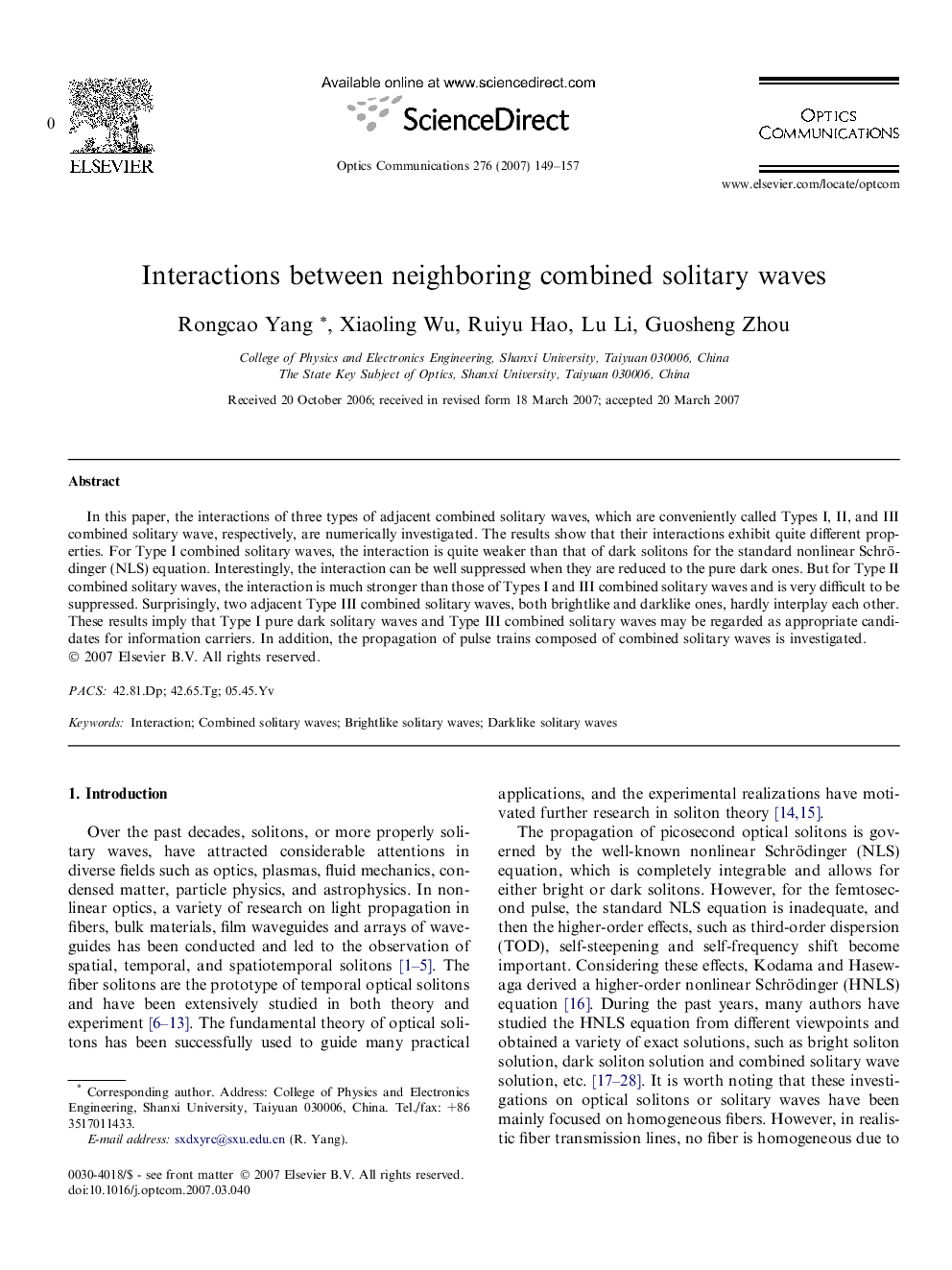| Article ID | Journal | Published Year | Pages | File Type |
|---|---|---|---|---|
| 1541401 | Optics Communications | 2007 | 9 Pages |
Abstract
In this paper, the interactions of three types of adjacent combined solitary waves, which are conveniently called Types I, II, and III combined solitary wave, respectively, are numerically investigated. The results show that their interactions exhibit quite different properties. For Type I combined solitary waves, the interaction is quite weaker than that of dark solitons for the standard nonlinear Schrödinger (NLS) equation. Interestingly, the interaction can be well suppressed when they are reduced to the pure dark ones. But for Type II combined solitary waves, the interaction is much stronger than those of Types I and III combined solitary waves and is very difficult to be suppressed. Surprisingly, two adjacent Type III combined solitary waves, both brightlike and darklike ones, hardly interplay each other. These results imply that Type I pure dark solitary waves and Type III combined solitary waves may be regarded as appropriate candidates for information carriers. In addition, the propagation of pulse trains composed of combined solitary waves is investigated.
Keywords
Related Topics
Physical Sciences and Engineering
Materials Science
Electronic, Optical and Magnetic Materials
Authors
Rongcao Yang, Xiaoling Wu, Ruiyu Hao, Lu Li, Guosheng Zhou,
